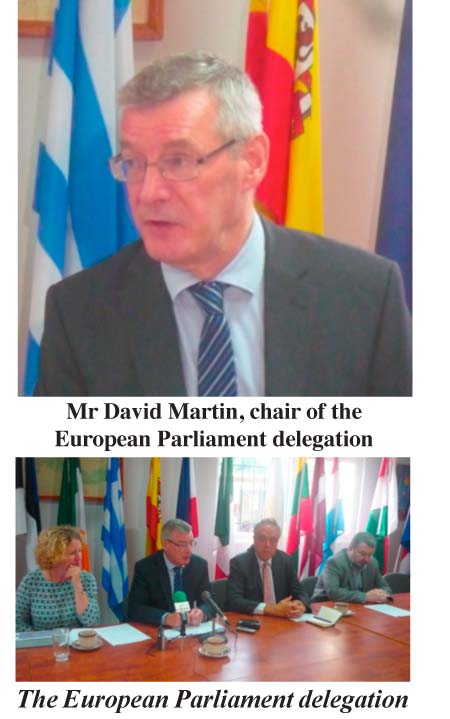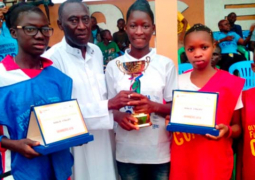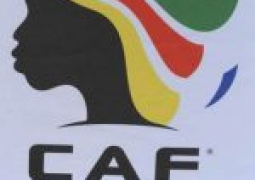
The European Parliament has expressed its concerns about the human rights situation in The Gambia in a resolution of May 2016.
The
resolution was triggered by the Gambia government’s violent repression of
peaceful protests in April 2016, by the arrest and torture of protestors,
including leading figures from the main opposition party UDP, by the sudden
death of the Executive Secretary of the UDP Youth Wing Solo Sandeng in custody
and, last but the least, by serious concern about the likelihood of a free and
fair presidential election in December 2016.
Four
members of the European Parliament’s Subcommittee on Human Rights (DROI), David
Martin (British member from the Social & Democratic group), Richard Howitt
(Federal British member from the Social & Democratic group), Judith
Sargentini (Greens member of parliament from The Netherlands) and Karol Karski
(a Polish member from the European Conservative and Reformers group) are part
of the delegation that visited The Gambia since 19 September.
The
chair of the delegation, David Martin, speaking at a press debriefing held at
the EU delegation office yesterday,
Thursday
22 September, following the conclusion of their visit to The Gambia, said the
delegation visited two EU-funded projects on employment of women and children’s
rights, and had meetings with representatives of the National Assembly,
including the minority leader, with the Independent Electoral Commission, the
Ombudsman, with women’s associations and with the opposition parties.
The
Gambia is facing a presidential election in December 2016. Against this
background, the purpose of the visit was to gather information, to influence the
government to improve its human rights record and to support human rights
campaigners.
The
delegation appreciated the hospitality and openness of its Gambian
counterparts.
“Regrettably,
though, government representatives were not available”, reporters were told.
The
delegation also acknowledged the significant progress made in certain areas
like the ban on FGM and the ban on child marriage. They were also briefed on
technical preparations for the elections.
“In
order to respect international democratic norms,” the delegation has called on
the Gambia government “to release all protesters arrested in connection with
the April protests including the UDP leader Ousainou Darboe, to grant access to
state media to opposition parties, to allow the United Nations Special
Elections Team access to the county, and to conduct an independent
investigation into Solo Sandeng’s death.”
“It
has become clear that important provisions of the Gambian constitution are
still to be fully implemented, especially those on freedom of speech and
prisoners’ rights.
“The
delegation also encourages the Gambian government to continue with its plans to
establish a National Human Rights Commission.
“We
are interested in having good relations with The Gambia,” they said, adding:
“If, however, the human rights situation does not improve or even deteriorates,
the European Parliament has indicated that there will be a need to consider
targeted sanctions on officials responsible for the serious human rights
abuses.”
The
chairperson of delegation, David Martin, said the purpose of the visit was to
follow up on a resolution that the European Parliament passed in May 2016,
expressing great concerns about the human rights situation in The Gambia,
following the demonstration in April and the arrest and suspected torture of
the protesters.
“We
are also extremely concerned about the death in custody of Solo Sandeng. We
also put this in the context of the upcoming Presidential elections in
December, where we have serious doubt about the likelihood of free and fair
elections taking place in December.”
During
their visit, they met with public bodies such as the Ombudsman, chair and
committee of the Independent Electoral Commission, opposition leaders, and
National Assembly members
Martin
said they also visited EU-funded projects, particularly focusing on improving
women and children’s rights, as well as non-government actors, and other
bodies.
The
delegation appreciated the hospitality and openness of The Gambia, he said, but
were sad to know that “the human rights situation in The Gambia is not getting
any better, and possibly still deteriorating”.
He,
therefore, encouraged government to release all protesters of the
demonstrations in April, particularly Ousainou Darboe, and to ensure no one is
held in custody without due process.
He
also said it is vital that opposition parties are given access to state media
ahead of the elections.
“We
also hope that the government will allow the United Nations Special Elections
Team access to the county to ensure that there is an independent observation of
the elections.”
Mr
Martin further stated that they would also like to see an independent
investigation into the death of Solo Sandeng.
“We
have heard from many people that the Gambian constitution is almost a perfect
constitution, but we also have from many people that it is imperfectly applied,
and we would like government and all official bodies in future to recognize and
respect the constitution.
“We
will also encourage the Gambian government to continue with its plans to
establish a National Human Rights Commission.
“The
European Parliament in its resolution in May said, if the human rights
situation in this country does not improve, we will be recommending to the
other EU institutions to consider targeted sanctions against officials in The
Gambia for serious human rights abuse.”



